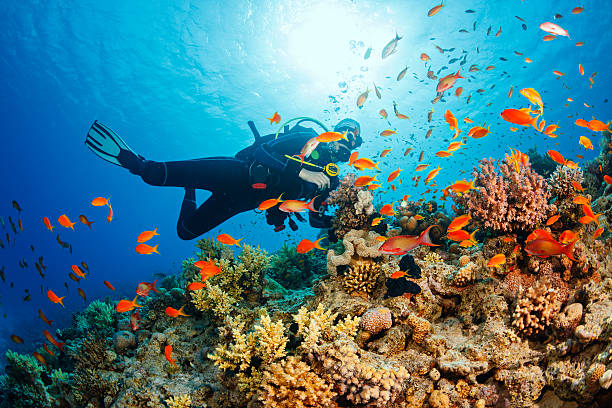The Benefits And Risks Of Eating Seafood

By Gerard Butler July 22, 2022
Are you looking for a healthy way to add more protein and omega-3 fatty acids to your diet? If so, you may be considering adding seafood like the best reef fish or tuna to your menu. It is a great source of nutrients, but be aware, that it also comes with some risks.
The benefits of eating seafood
There is absolutely no doubt about the fact that eating seafood is highly beneficial for your health. For starters, according to tuna and swordfish suppliers, it is an excellent source of protein. It is also a great source of omega-three fatty acids, which are essential for maintaining heart health and preventing chronic diseases.
Other nutrients in seafood include
- Selenium is an important antioxidant that helps protect cells from damage.
- Iodine is essential for thyroid health.
- Vitamins A and D are necessary for vision and immune system health.
In addition to being nutritious, it is also relatively low in calories. This makes it a great option for people who are trying to lose weight or maintain a healthy weight.
Finally, eating fish has been linked with a lower risk of death from all causes. One large study found that people who eat at least two servings per week have a 24% lower risk of dying prematurely than those who don’t eat them.
In addition to the above-mentioned benefits, it is also known to improve cognitive function, lower blood pressure, and reduce the risk of stroke. What’s not to love?
Eating it can also have some positive environmental impacts. Seafood that is sustainably harvested helps to preserve our oceans and ensures that future generations will be able to enjoy the same bounty that we do today.
So, there are plenty of good reasons to add more to your diet! Just be sure to choose it wisely and cook it properly to minimize the risks associated with it.
The risks of eating seafood
- Mercury contamination: This is a particular concern for pregnant women, as high levels of mercury can damage the developing nervous system of a foetus.
- Bacterial and viral infections: these are usually associated with eating raw or undercooked fish.
- Some people may be allergic to seafood, and even if you’ve eaten it before with no problem, it is always possible to develop an allergy later in life.
- High histamine levels: High histamine levels can cause an allergic reaction in some people.
If you are concerned about any of these risks, talk to your doctor or a registered dietitian before making it a regular part of your diet. They can help you weigh the pros and cons and make the best decision for your health.
Now that you know a bit more about the benefits and risks of eating seafood, you can make an informed decision about whether or not it is right for you. If you do choose to eat seafood, remember to cook it properly and avoid eating raw or undercooked fish or shellfish. As always, if you have any concerns, speak to your doctor or registered dietitian.
How to choose healthy and sustainable seafood
Sustainably sourced seafood supplied by reputed seafood and tuna fish exporters in Sri Lanka is good for you and good for the planet. However, with so many different labels, it can be hard to know what to look for. Here are a few things to keep in mind when choosing seafood:
- The best way to ensure that it is both healthy and sustainable is to buy local. When seafood is caught locally, it is more likely to be fresh and less likely to contain harmful chemicals or mercury.
- When buying them from a grocery store or fish market, look for labels that indicate the fish was sustainably raised or caught. Some common sustainable certification labels include the Marine Stewardship Council (MSC), Best Aquaculture Practices (BAP), and Friend of the Sea (FOS).
- If you are unsure about which fish to buy, ask the fishmonger for guidance. They should be able to tell you about the different types of seafood they have in stock and where they came from.
It is important to remember that not all are created equal. Some types contain high levels of mercury or other harmful chemicals that can be detrimental to your health if consumed in large quantities. Therefore, it is important to be aware of the potential risks before you start eating seafood regularly.
Recipes for delicious and healthy seafood dishes
It is the favoured meat of professional chefs and home cooks alike because of its great flavour, taste, and versatility when it comes to recipes. You can find recipes for all sorts of dishes online, in cookbooks, or from family and friends.
Here are a few of our favourites:
- Grilled salmon with lemon and herbs
- Shrimp scampi
- fish tacos
- Clam chowder
- Sushi rolls
Whatever type of dish you choose to make, be sure to source your seafood from a reputable supplier to reduce the risk of mercury poisoning or other health hazards.
sooperarticles.com







No Comment